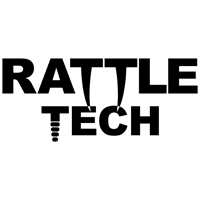
 The Internet of Things promises a huge opportunity for many players in all businesses and industries. It is widely anticipated that IoT will precipitate a major shift in people’s lives similar to how the Internet transformed the way we communicate and share information. There are, however, four significant challenges that will need to be overcome to make sure that the benefits outweigh the risks.
The Internet of Things promises a huge opportunity for many players in all businesses and industries. It is widely anticipated that IoT will precipitate a major shift in people’s lives similar to how the Internet transformed the way we communicate and share information. There are, however, four significant challenges that will need to be overcome to make sure that the benefits outweigh the risks.
1. Security
As the Internet of Things connects more devices together, it provides more decentralized entry points for malware. Hackers have already managed to penetrate unsecured smart home devices to install malware that attacks other Internet sites. This problem gets compounded if critical connected devices in offices, hospitals, cities, etc. are compromised. The concern will no longer be limited to the protection of sensitive information. Our very lives and health can become a target of IoT hack attacks. The most famous example of this is the Hollywood Presbyterian Medical Center ransomware attack last year which caused computers to be offline for a week and pushed employees back to using paper and fax machines. For the Internet of Things to succeed, a robust set of security schemes and protocols need to be enabled, and diligently implemented.
2. Data ownership
A battle has already started brewing on who owns the vast amount of data generated by iOT. The answer is complicated. From a legal perspective, there are no property rights as such. There might be intellectual property in data if you do certain things to take it beyond a certain piece of information. This turf war is getting set to take place between legacy companies seeking to protect their proprietary systems advantages and open system proponents seeking to try and set new standards. The lack of clarity around who owns the data can be seen with connected cars – car manufacturers want to own the data, but the independent service and repair shops also want access, so they don’t get locked out of future revenue. New partnerships and business models will need to be created to share the data without causing data security issues.
3. Powering billions of IoT devices
To be truly valuable, IoT devices will need to be continuously on and connected, so they are collecting data and acting on it 24/7. Even with improved batteries and green sources like solar and wind, just meeting the demand will be difficult. If you add issues like wasted energy and pollutants, powering IoT could become a major social problem in its own right in the next decade. There will need to be a new framework to identify new power distribution and management schemes.
4. Handling the resulting e-waste
Our e-waste from frequently-replaced computers, mobile phones, tablets , TVs is already polluting drinking water and causing harm to ecosystems around the world. The additional e-waste from billions of discarded IoT devices is going to make the problem exponentially worse. IoT will include some 30 billion connected devices by 2020 according to analyst firm Gartner. There is a growing concern of what becomes of these devices when they reach end of life. Today, there are strategies in place to address this problem such as EPEAT, an environmental procurement tool, which helps buyers identify, compare and select environmentally preferable products. A large consortium of the biggest players in the market is working on developing such standards. AT&T, Cisco, IBM, Intel and GE have formed an Industrial Internet Consortium (IIC) to work with governments and academia to set the right standards for manufacturers of IoT devices. However, this area is still nascent and requires thought leadership to create new strategies and methods to limit and dispose the resulting e-waste.
The Internet of Things is in the early stages of market development. Like many preceding waves of technology evolution, it is characterized by innovation, fragmentation, confusion, competition and emerging standards. As it begins its journey through these stages, there will be major challenges. Understanding these challenges and overcoming them through industry collaboration will be necessary to drive new business models and revenue for all the players.
Are you building an IoT product or service, and need help to complete the entire solution? Contact us to learn more about how we help companies like yours get to market quickly and economically.


